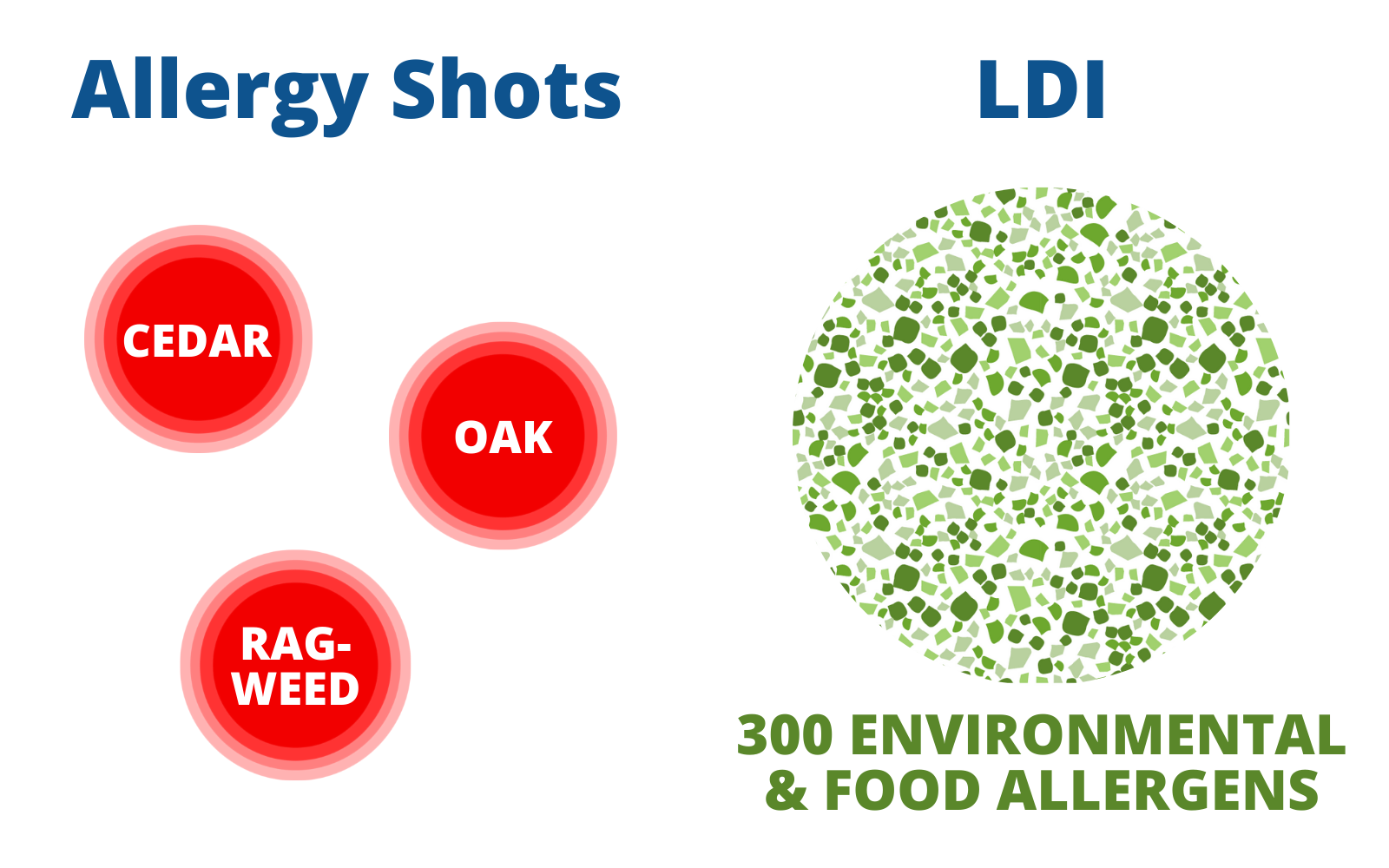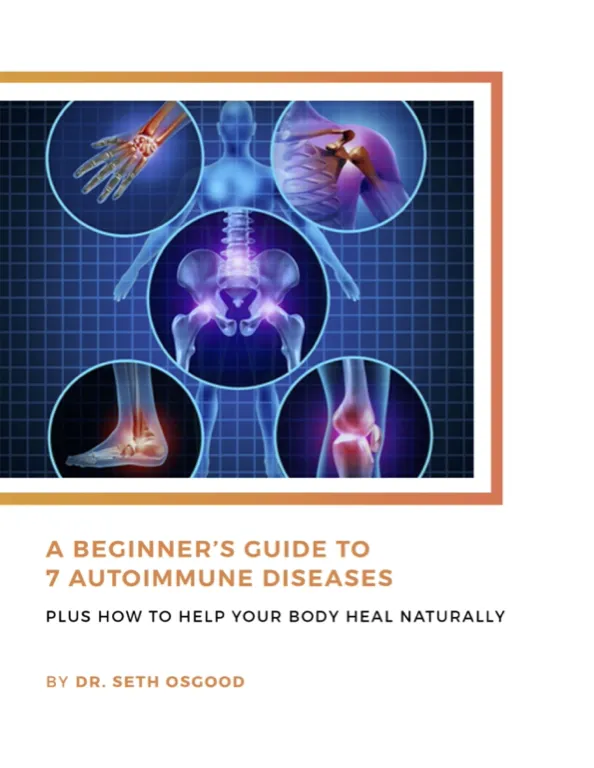In the month of August, we are shining a light on autoimmune issues that are misunderstood or ignored in the mainstream.
So far we have covered how to get the right testing and what causes autoimmune disease. This week we’re highlighting an exciting new and highly effective treatment option for autoimmune patients – Low Dose Immunotherapy or LDI!
We’ll explore what it is, how it works, and how it can benefit challenging autoimmune cases.
What is Low-Dose Immunotherapy?
LDI is a therapy for “turning off” an overactive immune response through low level exposure to your triggers. The goal is to retrain your regulatory T cells so your immune system doesn’t overreact to harmless substances.
It’s based on the same concept as allergy shots, but they’re more like distant cousins than siblings.
Allergy shots provide a substantial dose of the specific food and inhalant allergens identified in a skin prick or blood test. This limited exposure sounds better in theory, but ignores the common issue of cross-reactivity where you develop an immune response to a separate but similar allergen (ex: grasses when you were only allergic to cedar). There is also risk for anaphylaxis and a significant symptom flare due to the concentration levels in allergy shots.
Low-dose immunotherapy can provide low levels of exposure to hundreds of allergens to create broad spectrum tolerance and decrease the likelihood of cross-reactivity. Additionally, LDI mixtures can contain pathogens (viruses and bacteria) to calm a chronic inflammatory response to infections, as well as chemicals to reduce chemical sensitivities. Because the doses are so diluted, there is no risk for anaphylaxis or a severe reaction.

For an in-depth explanation of how LDI works and how it’s used for autoimmunity, allergies, eczema, and chronic infections, check out this podcast episode!
How Low-Dose Immunotherapy Can Help Autoimmune Patients
As we covered in last week’s article, autoimmunity develops when your body loses tolerance of self and your immune system attacks normal tissue believing it’s an invader.
We also know that autoimmune attacks are often triggered or worsened by a viral or bacterial infection. In some cases, you can treat the infection and the immune system stops targeting your tissues.
However, it is normal to have very low levels of pathogens present in the body even after treatment. When the immune system cannot tolerate even these levels, it stays in constant attack mode, chronic inflammation develops, and symptoms persist. We see this very often in patients with Lyme and autoimmune disease.
These patients are traditionally given round after round of antibiotics to blast the bugs. They may also be given steroids to suppress the immune system’s attacks. This is not only not a long-term solution, it depletes the microbiome and leaves the patient vulnerable to other infections and cancer.
LDI can help stop the mechanism behind autoimmune attacks by re-establishing tolerance to non-threatening levels of bacteria and viruses.
It can be particularly helpful for chronic Lyme because these patients often have co-infections that can all be targeted by the broad spectrum of antigens in LDI doses.
How is Low-Dose Immunotherapy Administered?
The antigen doses are given sublingually (under the tongue) every seven to eight weeks, in personalized concentration levels.
For treatment to be successful, you must determine your core dose – the specific antigen combination and concentration that relieves your symptoms. This is different for each individual and requires a bit of trial and error through the dose titration process.
During this process the patient begins with a really low concentration and moves through progressively stronger doses every few days until they observe a response.
- If the dose is too low or it’s the wrong combination of antigens, you won’t see any response at all.
- If the dose is too high, you’ll see a temporary flare up in symptoms (typically mild to moderate). This indicates the antigen is correct and the titration simply needs to be refined.
- If the dose is correct, you’ll notice a significant improvement in symptoms.
It can be a lengthy process to determine your correct dose and re-establish tolerance, but the results can be dramatic!
If you’re interested in LDI treatments, you can learn more about our LDI services and how to begin the process here.
About the Author: Dr. Seth Osgood is a Doctor of Nursing Practice, Board Certified Family Nurse Practitioner and Institute of Functional Medicine (IFM) Certified Practitioner. Dr. Osgood received his post-graduate training in Functional Medicine through the IFM and from working with Dr. Amy Myers. He has helped people from around the world improve their health utilizing a Functional Medicine approach.





